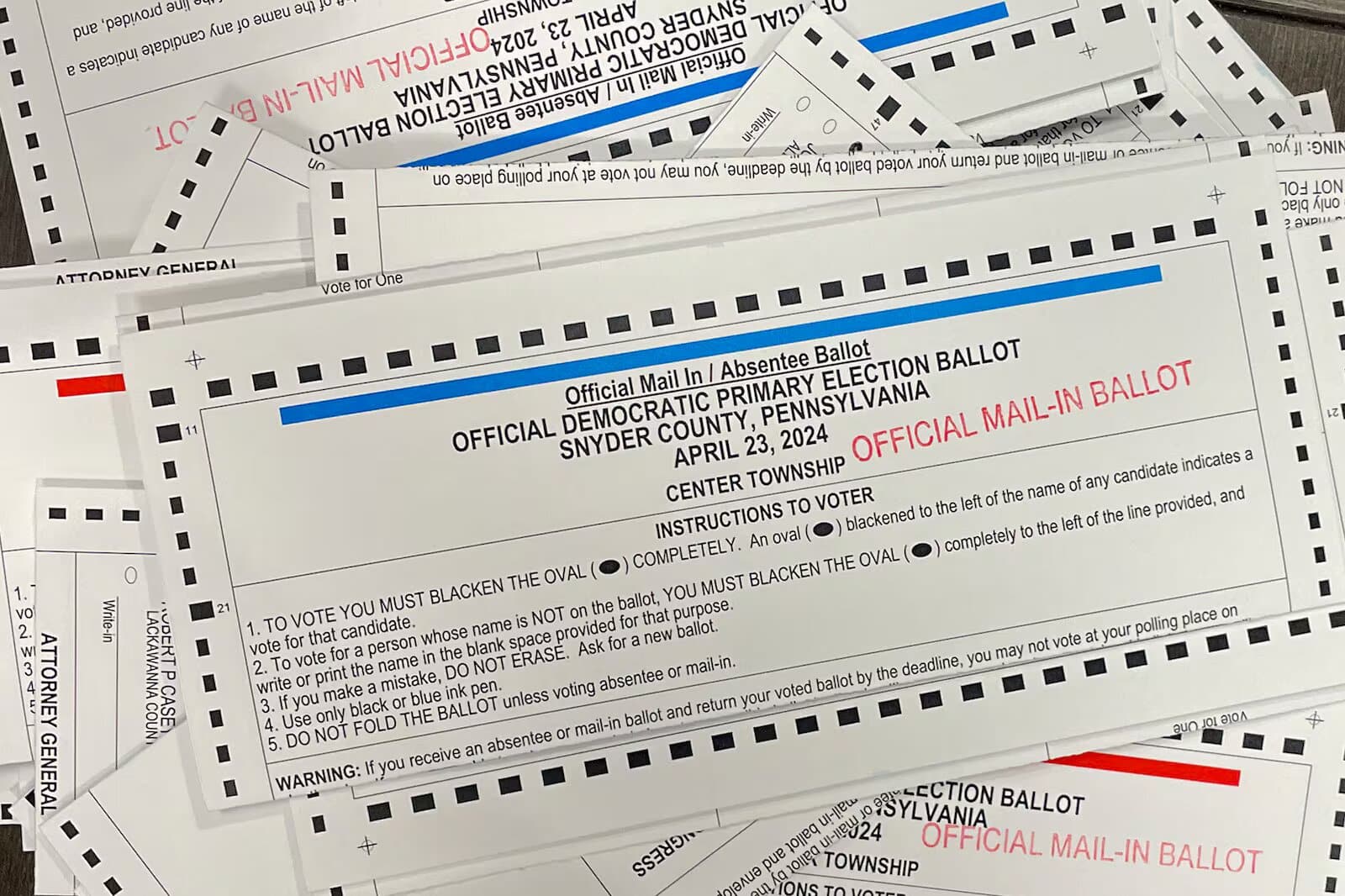A Butler County judge got it wrong when he decided that the county did not have to count provisional ballots from voters whose mail ballots were rejected because of an error, the Pennsylvania Commonwealth Court ruled Thursday.
Lawyers for voting rights groups that brought the case said the ruling would set a statewide standard.
Meanwhile, a broader case on whether mail ballots can be rejected because voters failed to properly date their ballot return envelopes is moving forward after an appeal, setting the stage for a state Supreme Court decision.
The fast-moving cases underscore the political importance of Pennsylvania’s votes in the run-up to the November election. Decisions in these cases involving long-running disputes over the state’s voting rules are likely to influence how the election is conducted and whose votes get counted — which could determine the outcome itself.
Polling data shows the race between Vice President Kamala Harris and former President Donald Trump is very close, and the election in Pennsylvania could be decided by a thin margin.
READ: Common Cause Addresses Emerging and Evolving Threats to Upcoming 2024 Election
The Butler County case involves two voters whose mail ballots for the April primary were rejected for being returned without a secrecy envelope. They tried to cast provisional ballots, but the county refused to count them on the grounds that the two had already cast ballots by mail.
Provisional ballots are used at polling places by voters whose eligibility is in question but who still want to vote. Those ballots are counted only after the voter’s eligibility is confirmed, including a check to make sure no mail ballot from that same voter has already been counted.
The American Civil Liberties Union of Pennsylvania and the Public Interest Law Center sued on behalf of the voters, arguing that the county had misinterpreted a section of the state’s election code in considering the rejected mailed ballots as “cast.” But Butler County Court of Common Pleas Judge S. Michael Yeager ruled that the organizations’ argument was “simply not persuasive.”
In Thursday’s ruling, a three-judge panel of the Commonwealth Court ruled 2-1 that Yeager erred in his ruling.
“We hold that the Election Code, properly construed, does not prohibit” counting the voters’ provisional ballots, Commonwealth Court Judge Matthew Wolf wrote.
Marian Schneider, senior voting rights policy counsel at the ACLU of Pennsylvania, said the decision provides statewide clarity on the issue.
“We’re going to keep working to be sure that voters’ ballots are counted without unnecessary barriers leading to them being disqualified,” she said.
Butler County Commissioner Kimberly Geyer said the county would appeal to the state Supreme Court.
“Within only 20 calendar days since the original ruling by the Court of Common Pleas, this case has been swiftly heard and overruled in Commonwealth Court,” she said. “To say that this specific case is on the legal fast track is an understatement.”
PA Supreme Court to decide case on ballot dating requirement
The state Supreme Court has already accepted an appeal of a Commonwealth Court ruling last week — involving many of the same organizations — that found that counties should not reject ballots that don’t have a correct date on the return envelope. All parties had submitted their written arguments as of Wednesday. The accelerated timeline is thanks to a new temporary order from the Supreme Court aimed at speeding election disputes this year.
The Pennsylvania GOP and the Republican National Committee, which filed the appeal, argued to the state Supreme Court that the lower court misinterpreted existing case law and that the ACLU and Public Interest Law Center failed to include all counties as parties to the case. The original suit targeted the Department of State, Allegheny County, and Philadelphia.
In their filing, the Republican groups said that letting the lower court ruling stand — that is, effectively waiving the date requirement as a condition for counting a ballot — “threatens to unleash chaos, uncertainty, and an erosion of public confidence in the imminent 2024 general election.”
Thousands of ballots are rejected each election for dating issues. During the April primary, counties rejected roughly 8,500 ballots, or 1.22% of those returned, for lacking a signature, date, or being returned without a secrecy envelope, according to an analysis of Pennsylvania Department of State data. More than 4,400 of those were rejected for dating issues.
The court may decide the case based on the written filings alone, without any oral argument.
As of Thursday afternoon, no date for a hearing had been scheduled.
This article was originally published by Votebeat, a nonprofit news organization covering local election administration and voting access. Sign up for their free newsletters here.







